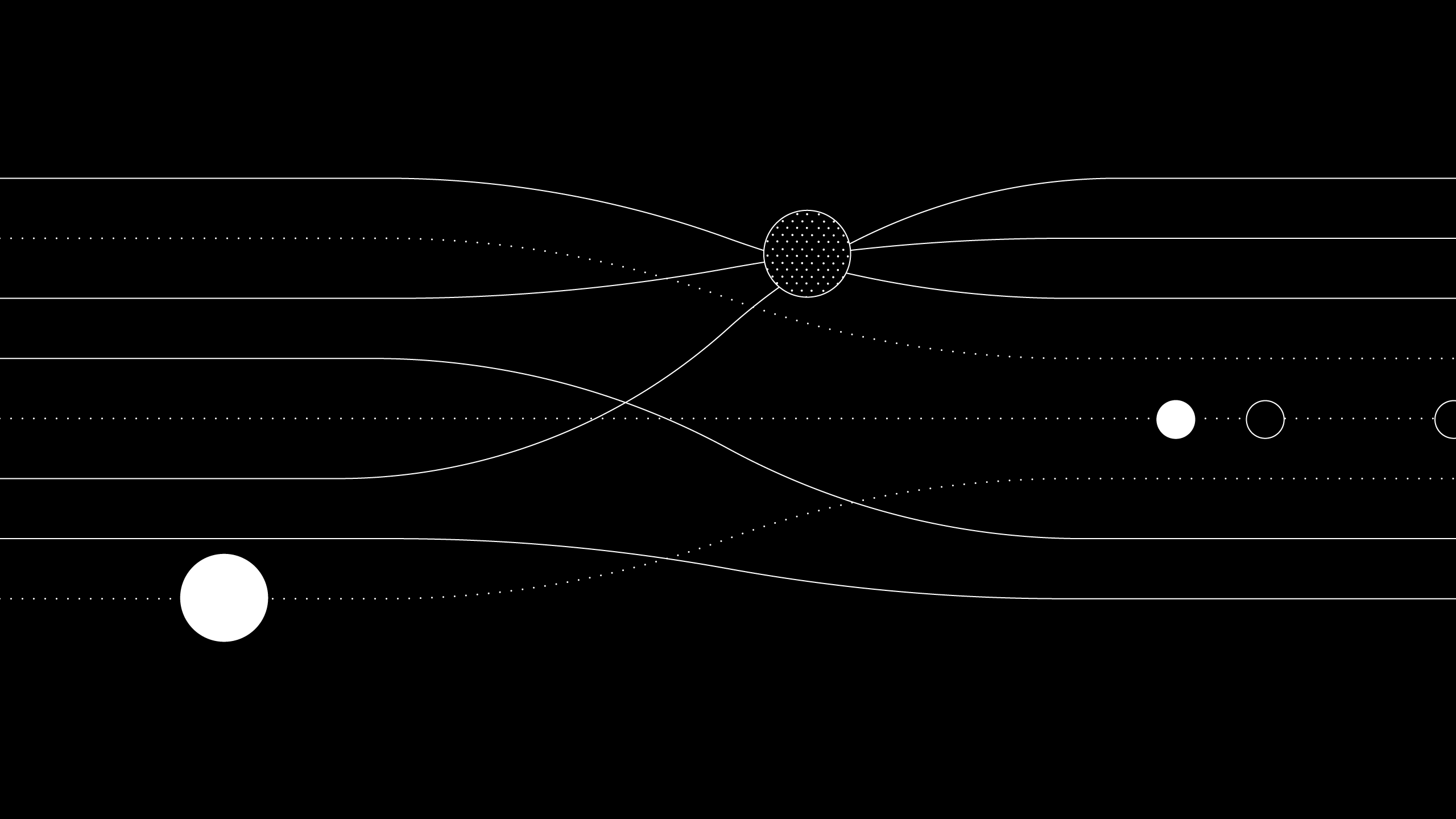
Supply chain sustainability drives operational excellence and makes good financial sense
Supply chain sustainability (SCS) isn’t just important for meeting your environmental, social and governance (ESG) goals, but it can help your business overcome unforeseen economic challenges and global uncertainty.
“What we've learned from the past two years is some of the challenges, especially in the supply chains, have not been on our radars until they hit us,” said Matthias Munzing, VP sales DA-CH, EcoVadis, during an interview at Celosphere 2022.
“But what we also see is that the companies that are basically monitoring their suppliers, actively partnering with their suppliers around sustainability and ESG topics, they've been better prepared to manage some of these challenges,” he added.
Munzing and Vivienne van Gestel-Becker, director partner development at Celonis, joined Tom Smith, Acceleration Economy and Cloud Wars analyst, at the Celonis News Desk to discuss the partnership between EcoVadis and Celonis to bring supplier sustainability data into Celonis Execution Management System (EMS).

The following is a transcript of the interview, edited for readability.
EcoVadis + Celonis: Sustainability and process efficiency for the supply chain
Tom Smith: Welcome, Vivienne, and Matthias, glad to have you here with us. Glad to have you at Celosphere. Vivienne, maybe you could start out and tell us a little bit about the partnership with EcoVadis and where it fits in kind of the overall Celonis partner strategy.
Vivienne van Gestel-Becker: Absolutely. Part of our technology partnership strategy, if you will, is having Celonis as the central steering view for customers to really manage all of their different processes from Celonis. And having now specifically EcoVadis by our side to enrich the Celonis EMS with sustainability data is for us a unique way to actually operationalize supplier sustainability, if you will, because we get to match that procurement process information that we already have within Celonis with the ratings from suppliers. And if you match those two and marry those two, you have a very unique way to kind of make sure that you manage that entire sustainable procurement and achieve your ESG objectives.
Tom Smith: Matthias, Vivienne actually referenced something being announced this week, which is a really significant partnership between your company and Celonis. Can you tell the audience more about that?
Matthias Munzing: Yeah, basically, let me go ahead by starting to introduce EcoVadis a little.
What is at the core of what EcoVadis does is bringing transparency into sustainability relations with partners. We are known to be the world's most trusted provider of business sustainability ratings. I think that trust element is a really key component because if you take execution management really seriously, it depends on data that you can trust. And we are the partner that can add that piece of the puzzle to Celonis.
Also: What is sustainability in business? The process, returns, KPIs and everything you need to know | 6 steps to operationalize sustainability | Sustainability will drive returns on investment with assist from inflation | Supply chain execs increase focus on sustainability, says Ernst & Young survey
Tom Smith: So tell us more about the relationship with that background. You've got these sustainability ratings, highly trusted. Where does the Celonis Execution Management come in? If I'm a customer, how will I use these two technologies together? And I think more importantly, how do I benefit from that?
Vivienne van Gestel-Becker: For me, there are four elements mainly.
So the first and foremost thing, and Matthias, you can speak to that in a moment, I'm sure, is the transparency that we're able to get. So transparency throughout the procurement process, throughout the suppliers, and throughout the ratings.
The second element is that that will allow you to make much more informed decisions. So would I choose to work with supplier X, Y, Z or would I benefit from working with a different supplier for this certain order because they are, for example, not engaging in child labor practices? Very simple example, but I think it's super impactful one. Now, Celonis can really give you those types of alerts that are then linked back to the supplier sustainability data that EcoVadis provides.
And then the third point is you can obviously measure then your progress. ‘Am I achieving my sustainability objectives?’ Hopefully when you have the joint solution in place, you are. That's the goal and that's the main customer value that we offer.
And then fourth and final, and this is something that's becoming really important as well, is that, communicating this success back to customers. So it's throughout the entire chain. This starts from suppliers, but having a really good and sustainable business is also something that customers are willing to engage with more and more. So it's becoming a critical business decision.
Tom Smith: Customers want to see this, I guess I'll call it aptitude around the companies they purchase from, that they're thinking about sustainability and they're putting sustainability practices into action, for example, using the EcoVadis technology combined with Celonis.
Vivienne van Gestel-Becker: Yeah.
Matthias Munzing: Absolutely.
Customers and investors increasingly pick ESG leading companies
Tom Smith: So Matthias, I know you mentioned to me that there are a couple, I don't know if the customers have this in production or they're testing it. What are they looking to do? What are some of the near term opportunities that you see?
Matthias Munzing: I think obviously one of the key trends that we see in the market right now and specifically in this region, but it's not limited to Germany, it's a global trend, is that overall compliance is a key driver. We've been waiting for that for a long time actually, to have the laws in place for companies to be obliged to act sustainably. Specifically here in Germany with the German Supply Chain Act this is one of the things that companies have to achieve. Basically the compliance element is just the urgency piece that drives them into action to embark on a much, much broader journey, so to speak.
Tom Smith: So compliance, mandated by law.
Matthias Munzing: Yes.
Tom Smith: And then you've got the factor that Vivienne talked about, which is their customers downstream care about this, and whether they're acting responsibly in putting sustainable practices in place within their supply chains.
Matthias Munzing: Absolutely. There's a very strong risk component in that, but there's also an opportunity component, and you can see that when customers ask for it, and I can position myself as a sustainable player, you can see it when investors ask for ESG information and they ask for trusted reliable data. So there's a couple of very strong business incentives that we see in our client base.
Also: ABB on sustainability: Just get started! | Proposed SEC rules could accelerate sustainability data collection | Process Efficiency: The Key to Walking the Walk of Sustainability
Supply chain sustainability is operational excellence
Tom Smith: So as we look forward to 2023, do you see any of those, either imperatives or mandates or usage drivers, is that changing? What does that look like? It's been a big focus obviously in 2022, we hear about it as a boardroom executive level priority. Is that going up, down? I mean, there's obviously a lot of other factors here, economic conditions and supply chain problems. Where does sustainability fit in all of that as a priority?
Matthias Munzing: It's a good question. So I think what we've learned from the past two years is some of the challenges, especially in the supply chains, have not been on our radars until they hit us really, be it the pandemic, be it the crisis or the war in the Ukraine, the energy crisis. But what we also see is that the companies that are basically monitoring their suppliers, actively partnering with their suppliers around sustainability and ESG topics, they've been better prepared to manage some of these challenges.
Tom Smith: Disruptions?
Matthias Munzing: Disruptions. So the message I would have is that there might be topics on the horizon that we don't even anticipate yet. But if you take that step seriously, and if you do your homework and if you manage sustainability in your supply chain, you might be better prepared for that. And it's almost like a proxy for operational excellence that we would see. And that fits very well into the execution management side of things that Celonis offers.
Tom Smith: I think that's a really interesting way you captured it there. This is a proxy for operational excellence. And I think you're saying if you are a company that's really focused on operational and process excellence, pretty good chance you're going to be having a sharp eye on sustainability and treating that as a business priority, as part of operating in an, I'll call it operational excellence, whether that's a government mandate or some other mandate. That's part of your kind of corporate DNA I would think.
Matthias Munzing: Absolutely.
Vivienne van Gestel-Becker: I think it's impressive, right, that there's this correlation between companies that look at their suppliers and evaluate them continuously from a sustainability perspective and how robust they function in an ever-changing super dynamic environment. So that actually means, for me at least, disagree with me if you like, if we focus on sustainability that has a very positive business impact. Obviously it has an earth is our future, one of our values at Celonis type of impact. But it also has a very positive impact into how robust your business is and how well you can handle change.
More from Celosphere 2022
Celosphere 2022: Everything you need to know news, product, process mining best practices
Celosphere 2022: Celonis brings perspective to process mining
A Closer Look: Celonis' acquisition of Sailfin, Intelligent Accounts Receivable apps
Celosphere 2022: You’re going to see groundbreaking progress on process mining technology
Editor’s note: This video was originally published on Acceleration Economy, How the Celonis and EcoVadis Partnership Leverages Sustainability and Process Excellence.



